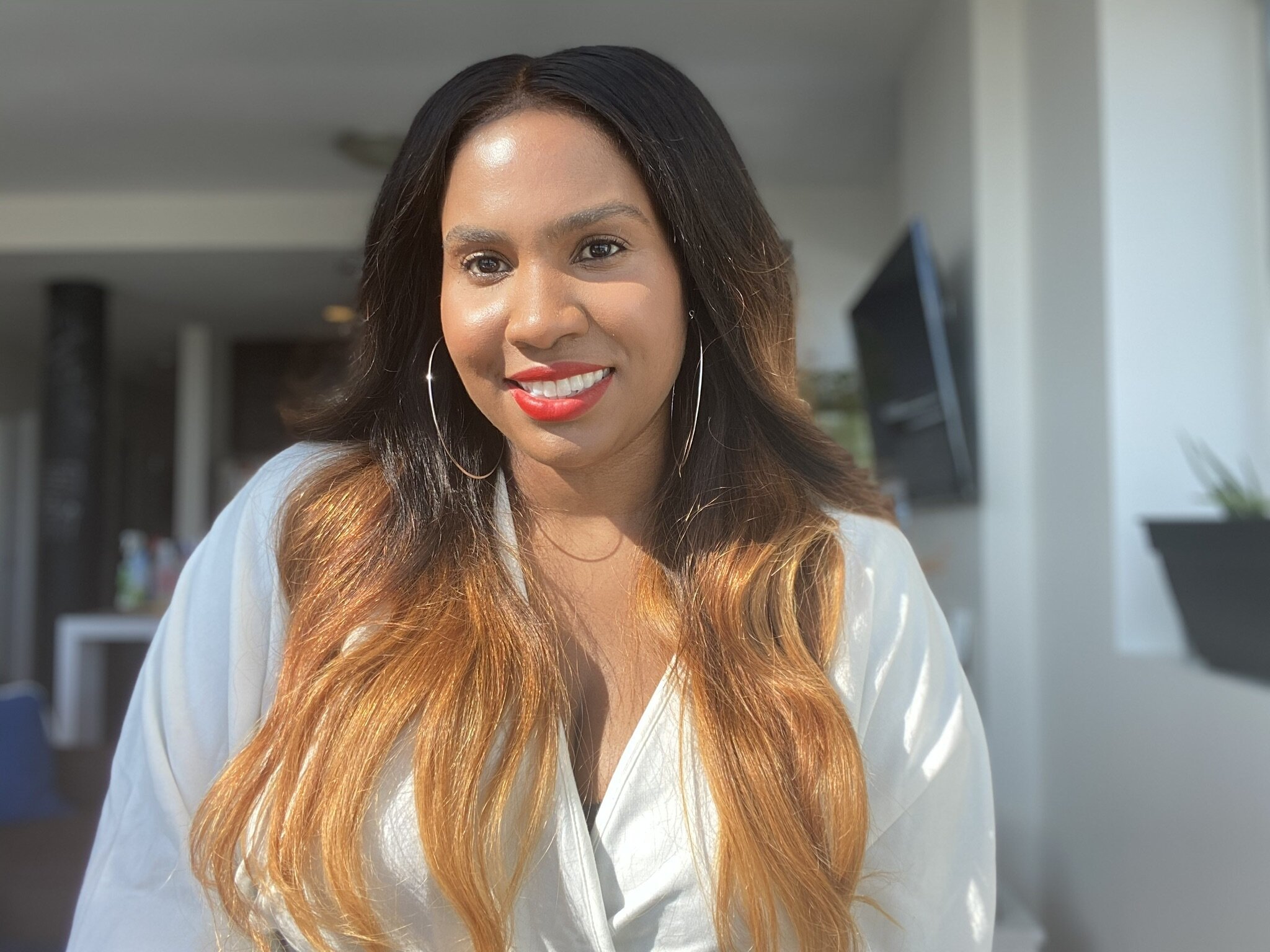Community Spotlight: Vu-An Foster, Life After 2 Losses
Recognizing the limits of available grief and loss support after two preventable second-trimester pregnancy losses, Vu-An Foster—an NJBEFA Capacity Building Pilot Program cohort member and 2022 grantee—decided to take action and launched Life After 2 Losses (LA2L) in 2018. LA2L responds to community needs by supporting women, families, and communities as they cope with loss and build confidence in their decision-making abilities during conception, pregnancy, labor, childbirth, and postpartum.
Can you tell us about starting Life After 2 Losses?
When I had my second pregnancy loss, I realized—through my own journey—that grief support in New Jersey was not cutting it, especially for Black women. Sharing my story, I would have women reach out to me saying, “I had a loss, but nobody talked about it,” or “The stuff you’re talking about—you should really stop talking about.” I realized there was a problem. There were women who were hurting and didn’t know where to go, because people were trying to put them in a silo—when this is everyone’s problem.
Equity requires changing systems. What does systems change mean at LA2L?
At Life After 2 Losses, we're looking at the problems and thinking outside of the box. We’re teaching women and making partnerships with other organizations—going to them, talking to their community about different health topics and how they can better advocate for themselves. I am driven by my passion to eliminate racial disparities in maternal and infant morbidity and mortality by using lived experiences to drive innovative public health thinking forward.
I recognize that effective systemic change will take years to be implemented, but women and birthing people who are BIPOC and/or have low incomes need help now. I launched a Health Literacy pilot program funded by the National Library of Medicine, where we discuss monthly topics that center on common Black perinatal health issues. Birthing people and their supporters learn about their health risks, how to monitor their health, what to do if warning signs occur, and how to successfully advocate for the care they need even in healthcare settings fraught with racism and bias.
It's unfortunate that we have to put some of the ownership on women, but if we don't, what happens? I lost two babies. I almost lost my life. I was showing up saying, “I have these symptoms. Something's not right.” And I was being told, “Oh, nothing's wrong with you. Go home.” If I had listened, if I had not kept advocating for myself, I wouldn't be here. My son wouldn't have a mom.
What are LA2L’s big organizational needs right now?
Staffing a board! I’d like to do recruitment, but I also need to have the time to be able to sit and work with board members. My goal is to create a working board until I have a team—and by team, I’d like an assistant. I do have an intern who’s in school while she's volunteering, and it’s important to me to be equitable to her, because I remember being an intern too.
How did NJBEFA funding impact your work?
I was funneling money from my full time job into Life After 2 Losses when I started, because I believed that women should have access to good grief support and a community. I created a website and a documentary, and I started providing support.
NJBEFA’s support was so important and helpful, because it was the first time we received funding for our grief support work. It was the first time I was able to have resources that were given. I had been paying to provide support to people myself, because I felt so passionate about the cause, but that's not equitable.
How do people find LA2L?
We have a YouTube channel, and I share my story there. People are finding our social media pages, and we also have over 40 partnerships, so we get many referrals.
Some of those partnerships are with hospitals, including the Bereavement Team at Morristown Medical Center, where I lost my second daughter. Having experienced discrimination there myself, I realized there were probably other Black women experiencing it too. We formed a partnership so women could get support, and I could help them not only heal through their grief, but if there was some trauma related to their losses, I could help support them through that too.
We also attend their annual Walk to Remember. Some years, we say a few words, and other years, we let women and families know we are a resource if they need it. We walk to honor our babies and all those gone too soon.
Finally, at NJBEFA, we think a lot about the well-being of our birth equity community members. As a mother, advocate, and leader, what does self-care look like for you?
Sometimes when we think of self-care, we think about getting a massage or a manicure-pedicure, but self-care is more than that. Self-care is mental. It's taking care of your emotional needs. It's the things you do for your physical self. It’s taking time to sit down and have a meal versus, “Oh, my gosh! I have this meeting to go to, let me just grab something really quickly.”
Self care is also sometimes saying no and giving yourself grace. I can't fight for equity for those that I serve and not for myself. For me, self-care has really been about setting boundaries and knowing when to say, “I'm not available for that.” We can't continue to say yes and pour from an empty cup.
Vu-An Foster is a public health professional with over a decade of experience in the healthcare field providing direct patient care. She has a Bachelor of Science Degree in Public Health from William Paterson University and a Master of Public Health Degree from Montclair State University.
To learn more about how you can support Life After 2 Losses’ theory of change and current programs, start here.



